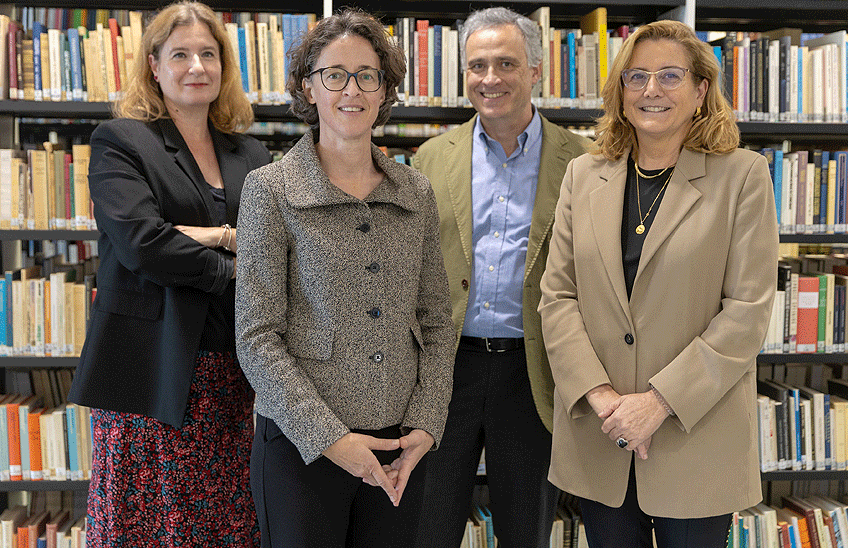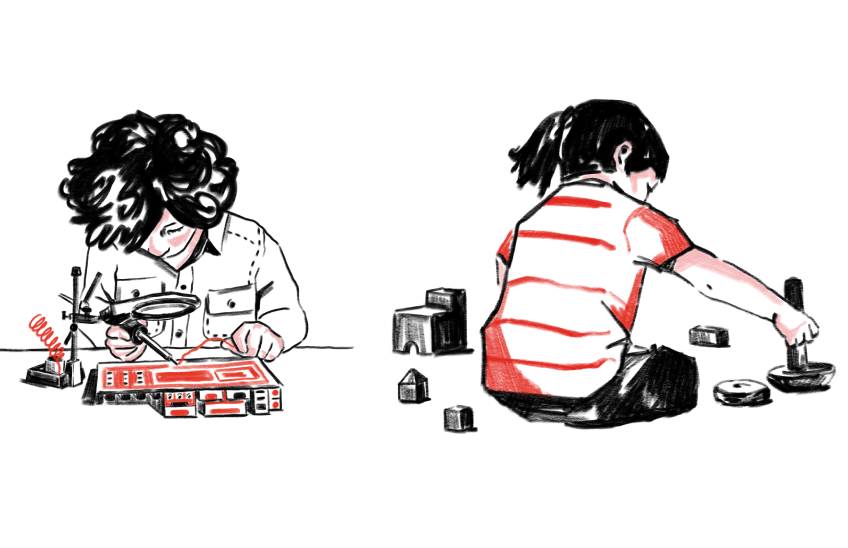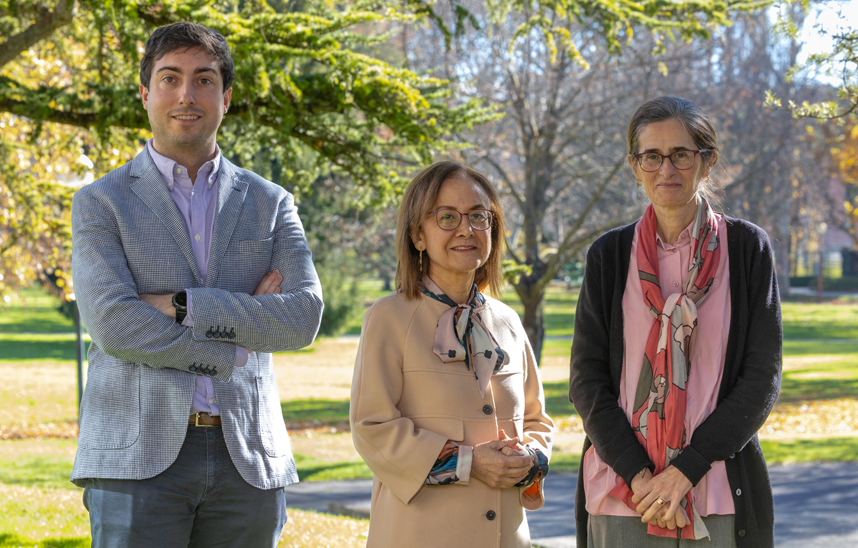The University leads a European research to promote meaningful reading in the university community.
The academic center also participates in another project Erasmus+ whose goal is promote inclusive values among adolescents.

PhotoManuelCastells/From left to right, Beatriz Gómez, Emma Cohen de Lara, Álvaro Sánchez-Ostiz and Rosalía Baena, researchers at project REMAP.
22 | 11 | 2024
Providing educational resources to teachers to encourage meaningful reading among European university students. Thisis the challenge that undertakes the project "REMAP: Reading for Meaning and Purpose", led by a team of the Center for Civic Humanism of the University of Navarra and has received Erasmus+ of the European Union. Institute for Culture and Society of the University of Navarra and which has received the financial aid Erasmus+ of the European Union. The University of Amsterdam (The Netherlands), the University of Latvia and the Bratislava International School of Liberal Arts (Slovakia), as well as the network of educational centers of the group COAS, especially the Biscayan high school Ayalde, are participating in the research, which will run until the fall of 2027.
The project claims meaningful reading as an ally to help students find meaning and purpose in their lives, making them more resilient and responding to their emotional, social and civic needs. Rosalía Baena, principal investigator and Vice President of Students of the University of Navarra, defines this subject of reading as that which "affects the experience of student, which can connect with its vital purpose , and which cannot always be taken for granted in today's university students".
As a result of this research, educational materials will be created for university and secondary school faculty , including a digital guide , a general subject and a training program for university teachers. The project also includes the Reading Mentors activity, a service learning program that has already begun in the School of Communication at the University of Navarra under the direction of Professor Beatriz Gómez, where a group of upperclassmen work with first-year students to improve their reading skills through different dynamics.
Inclusive values in adolescents and in environments with fewer opportunities
For its part, the School of Education and Psychology of the University of Navarra participates as a partner of project Erasmus+ "Making inclusive values attractive in secondary education", which will be developed with the universities of Tartu, in Estonia; the University of Latvia, as well as two centers of training in Riga (Latvia), another in Estonia, and one in Valencia (Spain). Its goal is to promote, through the research and different activities, that inclusive values are attractive to teenagers and to put them on internship in the centers of Education secondary schools. The aim is to provide teachers with the means to promote open and pluralistic discussions and activities that promote inclusion and encourage moral and civic dispositions in student body.
Twelve experts and 60 secondary school teachers will work on the project for two years. "This transnational research will bring together the best practices and the most advanced knowledge on the promotion of inclusive values, from a social and cultural perspective, among adolescents. To this end, a guide will be prepared for the faculty and a training course will be designed to support teachers in this task," explains Concepción Naval, professor at the School of Education and Psychology, who, together with professors Aurora Bernal and Álvaro Balaguer, is working on this project.
At the University of Navarra, this Erasmus+ research project is part of the research group Education, Citizenship and Character" of the School Education and Psychology. The initiative will pay attention to some sectors, sometimes less attended: teachers and students of professional training , the faculty with more years of experience and students with special educational needs. The goal is to approach those environments with fewer opportunities, such as, for example, teachers working with young people at risk of exclusion, migrants, refugees or people with disabilities and provide them with the means to facilitate their integration into the classroom.


